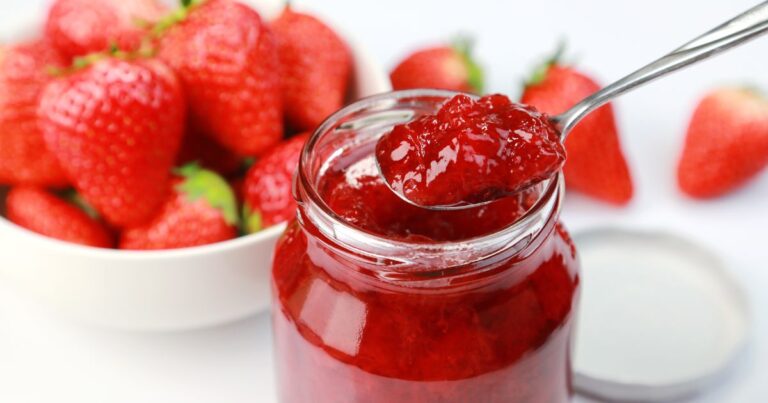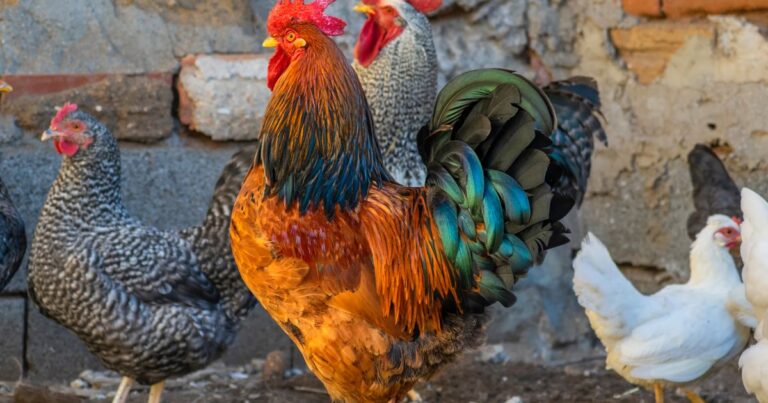The Health Benefits of Fermented Foods
Table of Contents
Hello, fellow food lovers! Sarah Thompson here, your go-to gal for all things nutrition. Today, we’re going to dive into the world of fermented foods. Now, you might be thinking, ‘Sarah, aren’t those just foods that have gone bad?’ Well, not quite! Fermented foods are a treasure trove of health benefits, and they’re delicious too! So, let’s get started.
“Fermented foods are a treasure trove of health benefits, and they’re delicious too!”
What are Fermented Foods?
Fermented foods are foods that have been through a process of lactofermentation. In this process, natural bacteria feed on the sugar and starch in the food, creating lactic acid. This process preserves the food and creates beneficial enzymes, b-vitamins, Omega-3 fatty acids, and various strains of probiotics. Some common fermented foods include yogurt, sauerkraut, kimchi, and kombucha.
But it’s not just about the science behind it. Fermented foods have been a part of human diets for thousands of years, across various cultures and continents. From the tangy sauerkraut of Germany to the spicy kimchi of Korea, fermented foods add a depth of flavor that’s hard to replicate. They’re a testament to our ancestors’ ingenuity in food preservation, and they continue to be a beloved part of our culinary heritage.
Common Fermented Foods and Their Benefits
| Fermented Food | Health Benefits |
|---|---|
| Yogurt | Rich in probiotics, aids digestion, boosts immune system |
| Sauerkraut | High in fiber, aids digestion, boosts immune system |
| Kimchi | High in vitamins A and C, aids digestion, may aid weight loss |
| Kombucha | Rich in probiotics, may aid digestion and weight loss |
The Health Benefits of Fermented Foods
Improved Digestive Health
One of the key benefits of fermented foods is their contribution to a healthy gut. The probiotics found in these foods help balance the bacteria in your gut, which can improve digestion and overall gut health. They can also help alleviate some digestive problems like constipation, diarrhea, and bloating.
But it’s not just about the physical benefits. A healthy gut can also impact your mental health. Research has shown a connection between gut health and mood, with some studies suggesting that probiotics can help with symptoms of depression and anxiety. So, by taking care of your gut, you’re also taking care of your mind.
Boosted Immune System
Did you know that a significant portion of your immune system is actually in your gut? That’s right! By improving your gut health, you’re also boosting your immune system. The probiotics in fermented foods can help enhance your body’s immune response and make it more efficient at fighting off infections.
And in these times, who doesn’t want a stronger immune system? By including fermented foods in your diet, you’re giving your body an extra line of defense against viruses and bacteria. It’s a delicious and natural way to keep your immune system in tip-top shape.
Enhanced Nutrient Absorption
Fermented foods can also help your body absorb nutrients more effectively. The fermentation process breaks down the nutrients in food into a more digestible form, making it easier for your body to absorb them. So, by including fermented foods in your diet, you’re actually getting more nutritional bang for your buck!
But it’s not just about absorbing more nutrients. It’s also about making the most of the nutrients you’re already getting. By improving your gut health, you’re enhancing your body’s ability to utilize the nutrients from all the foods you eat. So, fermented foods are a great addition to any balanced diet.
“By improving your gut health, you’re also boosting your immune system. The probiotics in fermented foods can help enhance your body’s immune response and make it more efficient at fighting off infections.”
Potential Weight Loss Benefits
Some studies have suggested that fermented foods could help with weight loss. This is likely due to their impact on gut health and metabolism. The probiotics in fermented foods can help regulate your metabolism, making it easier for your body to burn fat and lose weight. Additionally, because fermented foods can improve digestion, they can help your body process food more efficiently, which could potentially lead to weight loss.
However, it’s important to note that while fermented foods can support weight loss, they’re not a magic bullet. Weight loss is a complex process that involves many factors, including diet, exercise, sleep, and stress management. So while including fermented foods in your diet can certainly help, it’s also important to maintain a balanced diet and a healthy lifestyle for optimal weight loss results.
How to Include Fermented Foods in Your Diet
Incorporating fermented foods into your diet is easier than you might think. You can start by adding a serving of yogurt or kefir to your breakfast, or by including a side of sauerkraut or kimchi with your lunch or dinner. These foods are not only rich in probiotics but also delicious and versatile, making them easy to include in a variety of meals.
If you’re a fan of beverages, you can also try drinking kombucha, a fermented tea that’s become quite popular in recent years. Kombucha is a great source of probiotics and can be a healthy alternative to sugary drinks. Just be sure to choose a brand that’s low in sugar to get the most health benefits.
“While fermented foods have many health benefits, they should be consumed as part of a balanced diet. Some fermented foods can be high in salt, so it’s important to keep an eye on your sodium intake.”
Making Your Own Fermented Foods
If you’re feeling adventurous, you can even try making your own fermented foods at home! It’s a fun and rewarding process, and it allows you to control exactly what goes into your food. Plus, homemade fermented foods often have a higher probiotic content than store-bought versions. You can start with something simple like sauerkraut or kimchi, and once you get the hang of it, you can experiment with fermenting other foods.
Making your own fermented foods also gives you the opportunity to experiment with different flavors. You can add herbs, spices, and other flavorings to your ferments to create unique and delicious combinations. Just remember to always follow safe fermentation practices to ensure your ferments are safe to eat.

Steps to Make Your Own Sauerkraut at Home
- Choose a fresh, organic cabbage.
- Clean and finely chop the cabbage.
- Mix the cabbage with some sea salt and let it sit for a while.
- Pack the cabbage tightly into a clean glass jar.
- Cover the cabbage with its own juice (produced from the salt).
- Seal the jar and let it sit at room temperature for a few weeks.
- Once it’s fermented to your liking, store it in the fridge and enjoy!
A Word of Caution
While fermented foods have many health benefits, they should be consumed as part of a balanced diet. Some fermented foods can be high in salt, so it’s important to keep an eye on your sodium intake. As always, if you have any health concerns or dietary restrictions, it’s a good idea to talk to your doctor or a registered dietitian before making any major changes to your diet.
Conclusion
And there you have it, folks! That’s the lowdown on fermented foods. They’re not only tasty, but they’re also packed with health benefits. So why not give them a try? Your gut will thank you!
Frequently Asked Questions
What is the best method for including fermented foods in my diet?
Incorporating fermented foods into your diet is quite simple. You can start by adding a serving of yogurt or kefir to your breakfast, or by including a side of sauerkraut or kimchi with your lunch or dinner. If you’re a fan of beverages, you can also try drinking kombucha, a fermented tea that’s become quite popular in recent years.
Can I make my own fermented foods at home?
Making your own fermented foods at home can be a fun and rewarding process. It allows you to control exactly what goes into your food and often results in a higher probiotic content than store-bought versions. You can start with something simple like sauerkraut or kimchi, and once you get the hang of it, you can experiment with fermenting other foods.
Are there any precautions I should take when consuming fermented foods?
While fermented foods have many health benefits, they should be consumed as part of a balanced diet. Some fermented foods can be high in salt, so it’s important to keep an eye on your sodium intake. As always, if you have any health concerns or dietary restrictions, it’s a good idea to talk to your doctor or a registered dietitian before making any major changes to your diet.
Do fermented foods help with weight loss?
Some studies suggest that fermented foods could support weight loss due to their impact on gut health and metabolism. The probiotics in fermented foods can help regulate your metabolism, making it easier for your body to burn fat and lose weight. However, weight loss is a complex process that involves many factors, including diet, exercise, sleep, and stress management. So while including fermented foods in your diet can certainly help, it’s also important to maintain a balanced diet and a healthy lifestyle for optimal weight loss results.
What are the health benefits of fermented foods?
Fermented foods are known for their contribution to a healthy gut. The probiotics found in these foods help balance the bacteria in your gut, which can improve digestion and overall gut health. They can also help alleviate some digestive problems like constipation, diarrhea, and bloating. Additionally, fermented foods can boost your immune system, enhance nutrient absorption, and potentially aid in weight loss.
What are some examples of fermented foods?
Some common fermented foods include yogurt, sauerkraut, kimchi, and kombucha. These foods are not only rich in probiotics but also delicious and versatile, making them easy to include in a variety of meals.
Sources
Harvard Medical School: Fermented foods for better gut health
See also: Canning Tips for Beginners: What You Need to Know
I'm Sarah Thompson, a registered dietitian and organic farmer. I believe that good health starts in the kitchen, and there's nothing more satisfying than cooking a meal with ingredients you've grown yourself. I'm here to share my knowledge about nutrition and farm-to-table cooking, and hopefully inspire you to start your own food-growing journey. When I'm not tending to my farm or writing for The Teaching Cooperative, I'm probably in my kitchen, whipping up a new recipe with the freshest picks from my garden.




